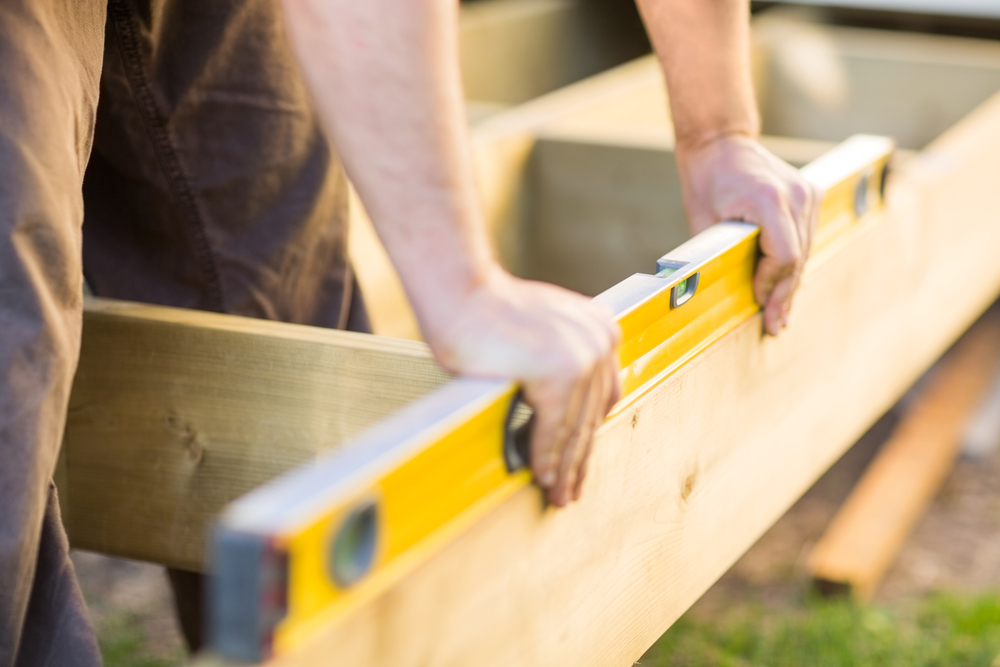Apr 29, 2016
Why You Need a Surveyor for Your Development Permit
You are gearing up for renovation season and you are pretty sure you know everything there is to know about your property. After all, you looked over that old survey in the paperwork when you bought the land. But do you really have all the facts?
You might – and in all honesty, that puts you a long way ahead of many homeowners. However, if you have any doubts, seeking the expertise of a professional surveyor will help you identify and solve common property issues before they become obstacles to that dream deck or kitchen extension.
Who Needs A Development Permit?
According to the City of Edmonton, anyone who wants to carry out construction, renovations, or changes to how a property is being used.
If you are building a new home, you will also need a building permit to prove that your structure complies with Alberta’s building code. If you are planning on extensive changes to your property, check out this step-by-step guide to the subdivision process.
When applying for a development permit, working with a surveyor or commissioning a real property report will make the whole process a lot smoother, and decrease the chances that your application will be rejected.
What To Consider Before Making Your Application
1. Property Lines
First things first – a survey is going to show you where the property lines really are, and possibly correct some bad assumptions.
It may seem obvious that a drain or utility line should be a boundary line, but years and years of development and old surveys can make the obvious obscure.
Knowing your property lines is essential for homeowners. After all, you don’t want to renovate or improve on any land that doesn’t actually belong to you!
2. Access and Right-of-Way
All physical access to public streets should be noted and, more importantly, any limitations to that access.
If, due to a low overhang, certain types of transportation could not reach the property, that would be noted. Think of those wonderful narrow streets in old European towns and then think of trying to maneuver a giant American SUV through them – it just wouldn’t work.
Your property may also have easements (also called rights-of-way) that limit your development options. For example, you may have an easement on the property for gas lines (meaning you can’t dig in a certain area) or a very old ruling granting permission to other individuals certain uses of the property.
The most critical piece of a survey may very well be in this research, since even if a right-of-way agreement was signed before you took ownership of the property you will still have to honor it and that could impede your intended development.
3. Obstacles Underground
It may be straightforward to locate obstacles above the ground, but in areas that have been developed for centuries, who knows what could be invisible underground? Surveyors can use historic data as well as sophisticated new technology to help you understand what lies beneath.
Of course, knowing the exact location of underground cables, pipes, or channels is critical before any excavation or construction begins. This ties in with the idea of easements, as utility companies may need access to your land. If surface water is noted, it may also be wise to have a clear understanding of the presence of underground water and how that could impact any development plans for the future.
You might even discover something rare like an old cemetery or burial ground – which could be very cool or very frustrating depending on how it affects your construction plans.
4. Environmental Concerns
Wetland alteration or other impacts on the environment must be carefully documented and obey local and regional bylaws.
Surveyors are experts when it comes to environmental site assessments and should be able to do a preliminary residential survey quite easily.
5. Zoning
Long before you get excited about a property for potential development, you need to know its zoning and restrictions.
The Zoning Bylaw provides guidelines for Edmonton’s zones, and you can find your property’s zoning designation using the City’s website.
It is worth noting that zoning regulations can differ dramatically across borders. A light industrial zone may give way to agriculture literally at a property line, and while the residents of one small town may be able to keep chickens in their backyard this might be restricted just blocks away.
6. Pre-Existing Issues
A land surveyor will also note any violations to existing codes.
Properties that have been unoccupied, or in which the previous ownership had not changed in many years, might be in violation of current codes. The new owner (i.e. you) would be responsible for correcting any issues before further development could take place.
In Summary
The permitting process can be lengthy and frustrating. Save yourself time and headaches down the road by working with a surveyor from the beginning to make sure your development proposal is in line with all requirements.
